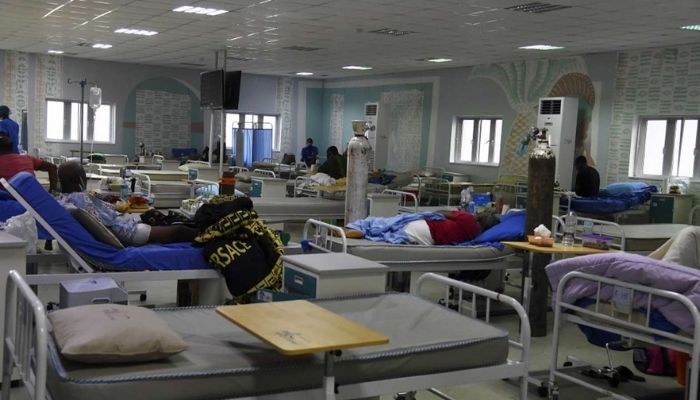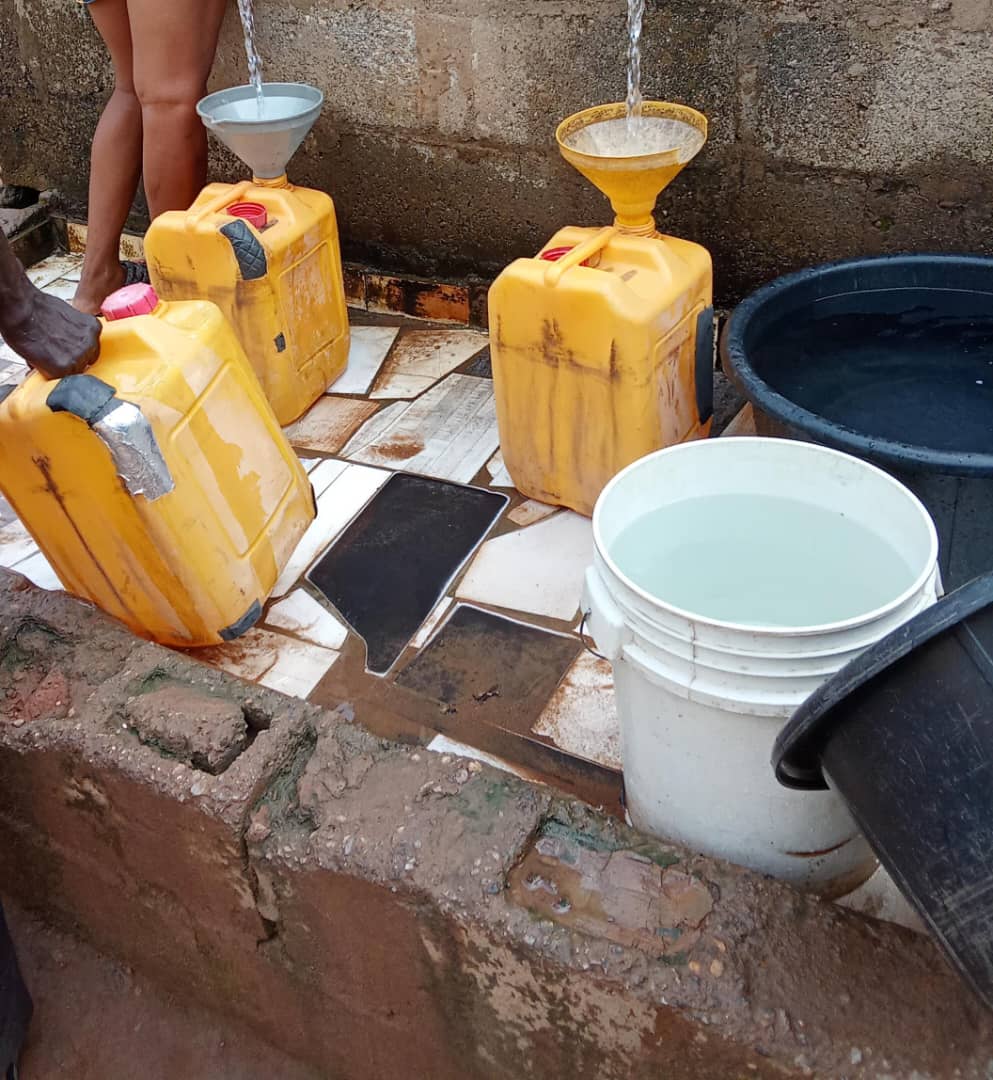As 2023 comes to a close, Favour Ozioma Ogbodo documents significant events in Nigeria’s Health Sector.
Nigeria witnessed many changes in 2023, from the transition from the ‘Change’ mandate of the Buhari administration to the ‘Renewed Hope’ mandate of the present Tinubu administration, to rising cost of living amidst poor remuneration and brain drain of professionals, including health workers. Below are some major events that occurred in the health sector in 2023.
Disease Outbreaks: Diphtheria, MPOX, Meningitis
In the early days of 2023, a diphtheria outbreak was declared on January 20, affecting 21 states out of 36, with 553 recorded cases. According to the Nigeria Centre for Disease Control (NCDC), cumulatively from 2022 – to December 3, 2023, a total of 20,684 suspected cases were reported from 33 States across 280 LGAs, with Kano having the highest numbers.
A breakdown of cases are as follows: Kano 13461, Yobe 2234, Katsina 1509, Bauchi 1139, Borno 968, Kaduna 486 and Jigawa 256 accounted for 96.9 of suspected cases reported.
It added that of the 20,684 suspected cases reported, 12086 (58.4%) were confirmed cases, 320 lab confirmed, 11,766 clinically compatible, 4,509 (21.8%)
were discarded, 1,844 (8.9%) are pending classification and 1,827 (8.8%) were
unknown.

The confirmed cases were distributed across 148 LGAs in 20 States – Kano 9613, Yobe 966, Bauchi 614, Katsina 440, Borno 348 and Jigawa 44, Kaduna 24, accounted for 99.7 of confirmed cases reported. Majority 8,393 (69.4%) of the confirmed cases were among children aged 1 – 14 years. Only 3,202 (26.5%) out of the 12086 confirmed cases were fully vaccinated with a diphtheria toxoid-containing vaccine. A total of 554 deaths were recorded among confirmed cases.
In April, there was an outbreak of monkey pox (MPOX), with over 26 cases reported from 14 states, with Nigeria reporting over 789 cases and 8 deaths, according to African Health Report (AHR)’s news archives.
From October 2022 to April 2023, meningitis was reported with over 1686 suspected cases and 124 deaths, with a case fatality ratio (CFR) of 7%, impacting 81 local government areas in 22 out of 36 states.
In November, dengue fever emerged with over 73 suspected cases in Sokoto, predominantly affecting the age group of 21 to 40 years.
The Japa Syndrome (Migration of Doctors to Other Countries)
The migration of healthcare workers from Nigeria was a major health concern in 2023. An average of 200 resident doctors in Nigeria relocated abroad every month over the last two years, seeking better pay, according to the chairman of the Nigerian Association of Resident Doctors (NARD), Dr. Innocent Emeka Orji, told The Associated Press in July. This posed a significant problem for Nigerians as the number of doctors and other health workers reduce, further worsening access to healthcare services for millions of Nigerians who rely on public health facilities.
According to him, over 5,000 medical doctors in Nigeria have migrated to the UK, the US, United Arab Emirates and other African countries due to inadequate compensation and unfavorable working conditions.

Speaking on the impact of the brain drain on the country’s health sector and Nigerians, he stated, “It has led to increasing waiting time for patients in hospitals to see their doctors, multiple cancelations of surgeries and appointments due to inadequate medical doctors.”
Poor remuneration and welfare, security problems, career prospects, good working environment and job satisfaction are among identified factors that contributed to the brain drain in the health sector.
WHO Approves Second Malaria Vaccine
In December, the World Health Organisation (WHO) endorsed a second malaria vaccine, the R21/Matrix-M malaria vaccine, in a significant step in the global fight against malaria.
WHO Director-General, Tedros Adhanom Ghebreyesus, said the United Nations UN health agency approved the new malaria vaccine based on advice from two expert groups which suggested the shot could be given to children at risk of the disease.
An elated Tedros said, “As a malaria researcher, I used to dream of the day we would have a safe and effective vaccine against malaria. Now we have two.”

The new three-shot vaccine was developed by Britain’s Oxford University, along with the Serum Institute of India. Research suggests it is more than 75 percent effective and can protect people for another year with an additional shot called a booster.
The WHO DG said the shot would cost about $2 to $4 and could be available in some countries next year.
Resident Doctors’ Strike
The Nigerian Association of Resident Doctors (NARD) embarked on a strike on July 26, 2023 to press home their demand for immediate payment of the 2023 Medical Residency Training Fund (MRTF) and tangible steps on the “upward review” of the Consolidated Medical Salary Structure (CONMESS), leading to severe manpower shortages, delayed surgical operations, and other medical services. The strike was called off on August 12, 2023.
Inflation in Medicine Prices
2023 experienced the highest inflation, with SBM intelligence reporting increased prices of anti-malarial medicines. The exit of GlaxoSmithKline and Sanofi from Nigeria after 51 years of business resulted in a doubling of paracetamol prices from a 25% jump in 2022 to 50% in 2023, highlighting the high cost of illness in Nigeria. Other medicines have also seen significant increase, especially antibiotics and inhalers.

Introduction of HPV Vaccines
Nigeria introduced the Human Papillomavirus (HPV) vaccine into its routine immunization system in October, aiming to reach 7.7 million girls. The vaccine was rolled out in 14 pilot states namely Abia, Adamawa, Akwa Ibom, Bauchi, Benue, Enugu, Jigawa, Kano, Lagos, Nasarawa, Ogun, Osun, Taraba and the Federal Capital Territory (FCT). h
The HPV vaccine is highly efficacious in preventing infection with HPV types 16 and 18, known to cause at least 70% of cervical cancers. The Federal Government secured over six million doses of the HPV vaccine to protect girls aged nine to 14 years against cervical cancer and related diseases. While Taraba had the highest vaccination rate, Lagos had the lowest.
According to the government, 78% of the national target for HPV vaccination coverage was achieved despite the spread of conspiracy theories and misinformation about the vaccine. The second phase of the vaccination is scheduled to start in May 2024 in 21 states.

Unveiling of Universal Health Coverage
The year concluded with the Federal Government unveiling Universal Health Coverage (UCH), aiming to provide access to health services without financial constraints. However, only 3% of Nigerians have health insurance, leaving 97% of the population without coverage. Despite various health insurance programmes, the National Health Insurance Scheme (NHIS) failed to capture those outside the employment cycle.
WHO Officially Recognises Noma as Neglected Tropical Disease
On 15 December, WHO officially recognised noma as one of the neglected tropical diseases following a collective action for health by 32 countries, with the trail-blazing leadership of Nigeria and 14 other African countries (Benin, Botswana, Burkina Faso, Cabo Verde, Chad, Guinea Bissau, Kenya, Liberia, Mauritius, Mozambique, Namibia, Niger, Rwanda, and Senegal.
Worldwide, over 140,000 children are impacted by this disease, with Nigeria reporting 4.1 to 17.9 cases per 100,000 people, particularly affecting the north-east and north-west regions.
Death of Doctors
Many doctors lost their lives in the outgoing year, due to neglect and security challenges such as targeted kidnappings. According to Medical Guild, 15 Lagos doctors died in six months.

The Chairman of the Guild, Dr. Sa’eid Ahmad, said, “The intensity of the attendant sense of loss was probably brought to its peak with the tragic event of the collapsed elevator in the General Hospital, Odan, Lagos, which claimed the life of our young colleague, the Late Dr. Vwaere Diaso.
“This was to be followed by end-on-end demises of some additional colleagues, sometimes, multiple over a few days.”
Pate Appointed Minister of Health
Ali Pate, a professor of Public Health, was appointed as the Minister of Health and Social Welfare by President Bola Tinubu. He had earlier served as Minister of State for Health from July 2011 to July 2013 in the administration of Goodluck Jonathan.

He was the Chief Executive Director of the National Primary Healthcare Development Agency from 2008 to 2011 and also served as the Global Director for Health, Nutrition, and Population and Director of the Global Financing Facility for Women, Children, and Adolescents at the World Bank Group.
Gavi is a professor of the Practice of Public Health Leadership in the Department of Global Health and Population at Harvard University. He turned down an appointment as the Chief Executive Officer of Gavi, the Vaccine Alliance, in August, to take up the national assignment.
There are expectations that he will bring in his wealth of experience in turning around the health sector.




Wow, superb weblog layout! How long have you been blogging for?
you make blogging glance easy. The full glance of your
site is magnificent, let alone the content! You can see similar: sklep online and here sklep internetowy